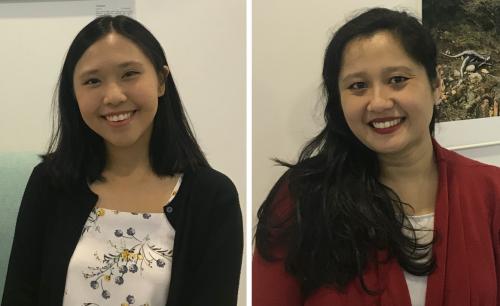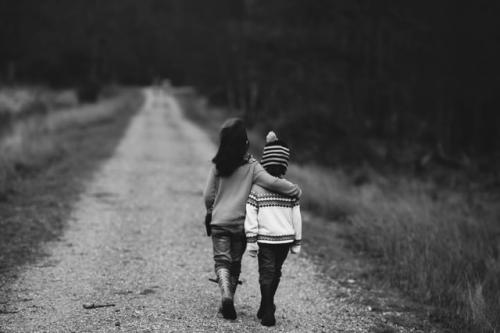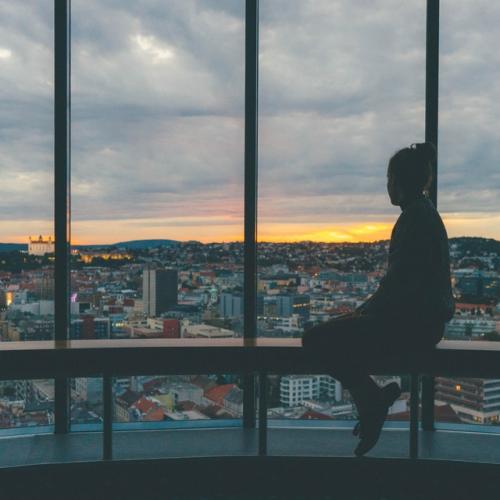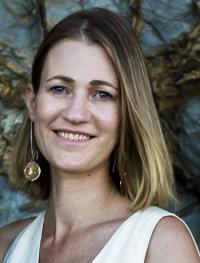This is the final article in a four-part series. Read Part 1, Part 2 and Part 3.
As the COVID-19 pandemic continues to unleash its effects on a global scale, most of us are glued to the news and social media for updates, and bracing ourselves for the impact of the coronavirus on our countries, communities and families. In the face of such uncertainty, it's only normal to feel anxious and afraid. However, if you're holed up at home letting your worries and fears get the better of you, it may be time to slow down and steer yourself into a calmer headspace.
To this end, SOCIAL SPACE will continue to bring you stories that inspire and uplift. In so doing, we hope to remind ourselves (and readers) of all the good that's still taking place around us. While we're cheering on our frontline heroes—healthcare professionals, cleaning crews, public service workers—let's also not forget the everyday heroes in our midst. Such as caregivers.
In Part 1, Part 2 and Part 3 of our caregivers series, we highlighted the courage, kindness and resilience of Christine and Nadia. In this final chapter, JAYA MYLER brings you an interview with both ladies.

Christine (left) and Nadia (right)
As caregivers yourselves, what advice do you have for others like you?
Christine: Caregiving can feel like you're carrying your whole world—and the world of the person you're caring for—upon your shoulders.That's a very huge burden for anyone to bear. But you don't have to be in this alone. Find the resources and support you need. Before I became a member of Caregivers Alliance (CAL), I was really struggling and did not know where to look for help or get advice on how to look after a loved one.
Nadia: There is no shame in asking for help. Caregivers need to understand that they are only human. We all have limits and there is no need to be too hard on yourself. If you feel like your efforts fell short today, tomorrow is another day to try again. I agree with Christine that it's important to find a support network—I cannot stress how much my life improved after I attended CAL's Caregivers-to-Caregivers Training Programme (C2C). Just knowing there are others out there going through similar experiences has made a world of difference.

Image via Unsplash
How are you coping these days?
Christine: I'm trying to minimise disruptions to my personal schedule, though it can be challenging. When my older brother isn't doing so well, we'll talk till 2 a.m. in the morning or until our mother tells us to go off to bed. She and I both attended CAL's training programmes so we regularly remind each other to set personal boundaries and live our own lives. My mother's philosophy is, if I drain myself of energy, I'd have none left to continue helping my brother.
Nadia: There've been pockets of my life in which I felt resentful towards my sister. I'd think, "She gets all the attention, and here I am working hard, doing well in school and in my job, but have nobody to celebrate with as my family is constantly worried about my sister and whether she's going to have a meltdown." But I've learned to exercise self-care and take time for myself.

Image via Pexels
You are each caregivers of loved ones with mental health conditions. What have you learned about mental health?
Nadia: Taking care of one's mental health is just as important as taking care of their physical body. If you want a healthy body, you don't stay in bed all day—you get active and exercise your muscles to strengthen them. Similarly, you have to take the necessary steps to safeguard your mental health.
Christine: Some people mistakenly believe mental health is a matter of willpower; that if you had enough willpower, you wouldn't have a mental illness. But mental health is not something you achieve by "working hard to be more positive". And neither is mental illness the result of someone being "mentally weak".
A mental health condition is a physical condition like a heart condition or a liver condition. The only difference is that a mental health condition takes place in the mind whereas the other two occur in the body. So the question is: if it's normal to take medication for a heart or liver condition, why not for the mind?

Image via Unsplash
Earlier you talked about the importance of lending caregivers a friendly listening ear. To end this interview, tell us anything. We're all ears.
Nadia: I want to encourage more people to check in on their friends, colleagues, or anyone they think may be going through something. You don't know someone's struggles until you ask them—for instance, you may not realise this, but as I’m talking to you, I’m functioning on five hours of sleep.
Caregivers also carry a lot of unnecessary guilt; at times we even feel bad about wanting to sit down at Starbucks to have a coffee. But I do wonder what it'd be like if I could just tell a stranger what I went through the night before. Like, "Oh man, I'm so shattered because my sister had a meltdown yesterday and I had to get her to IMH. The cops came and I had to watch as they carried my screaming sister away. It was 2 a.m. in the morning, and the commotion probably woke my neighbours. Such situations are upsetting for everyone, but my sister needs help."
Christine: I know of friends who either have mental health conditions, or whose family members do, but not all of them know where to turn to for help. Before I came to know of Caregivers Alliance, I did not know that there are groups of caregivers out there whom we can talk to and who can render assistance. As a society, we can all support caregivers better by first spreading awareness about the tools and resources available to them.
Banner image via Unsplash
|
|
Jaya Myler is a non-profit manager and marketing and communications specialist. She has worked with international NGOs and managed corporate and consumer brands, and has extensive experience with non-profits focused on education, the environment, providing access to clean water and sanitation. Jaya is passionate about the power of collaboration to drive innovation and achieve impact. She has also volunteered extensively with charities in the areas of housing, education and multi-sector partnerships. Jaya, an Australian, has been living and working in Asia for the past eight years, and has called Singapore home for nearly six. Connect with her on LinkedIn. |









Comments